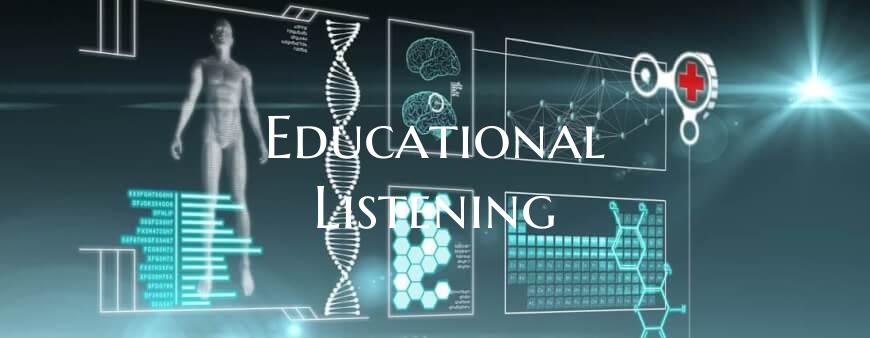Educational Listening
Introduction: Educational listening is a fundamental skill that plays a pivotal role in the learning process. It involves actively engaging with information, processing it effectively, and deriving meaningful insights. In educational settings, be it classrooms, seminars, or workshops, the ability to listen attentively can lead to improved comprehension, retention, and critical thinking. By honing this skill, students and individuals can enhance their overall learning experience and academic success.
The Importance of Educational Listening: Effective listening in an educational context is essential for various reasons. Firstly, it enables learners to grasp key concepts, instructions, and information presented by educators. By actively listening, individuals can better understand complex topics, follow directions accurately, and identify the essential points of a discussion or lecture. Moreover, educational listening fosters better communication between students and teachers, creating a conducive learning environment where ideas can be exchanged and knowledge can be shared effectively.
Strategies for Improving Educational Listening: 1. Active Participation: Engage with the material by asking questions, taking notes, and participating in class discussions. 2. Focus and Concentration: Minimize distractions and maintain attention on the speaker or the learning material. 3. Reflective Listening: Summarize key points, ask for clarification when needed, and paraphrase information to ensure understanding. 4. Empathetic Listening: Consider the speaker's perspective and emotions to develop a deeper understanding of the content being shared. 5. Practice Mindfulness: Stay present in the moment, practice deep breathing, and cultivate a mindset of openness and curiosity towards new information.
Benefits of Enhancing Educational Listening Skills: 1. Improved Academic Performance: Better understanding of concepts leads to higher grades and academic success. 2. Enhanced Critical Thinking: Sharpening listening skills can help in analyzing information, evaluating arguments, and forming logical conclusions. 3. Effective Communication: Active listening skills extend beyond the classroom and are valuable in professional settings, personal relationships, and everyday interactions. 4. Lifelong Learning: Cultivating a habit of educational listening instills a love for learning, encouraging continuous personal growth and development.
In conclusion, educational listening is a powerful tool that empowers individuals to become active learners, critical thinkers, and effective communicators. By focusing on honing this skill, students and learners can unlock a world of knowledge, enrich their educational journey, and succeed in both academic and real-world scenarios. Let's embrace the art of educational listening and harness its transformative potential in our quest for lifelong learning.

